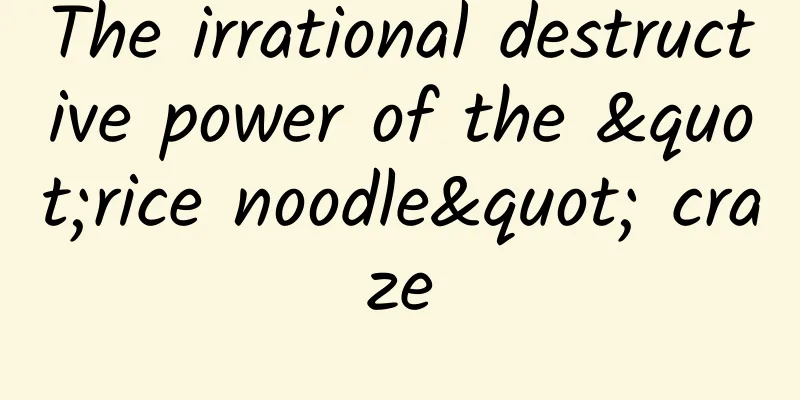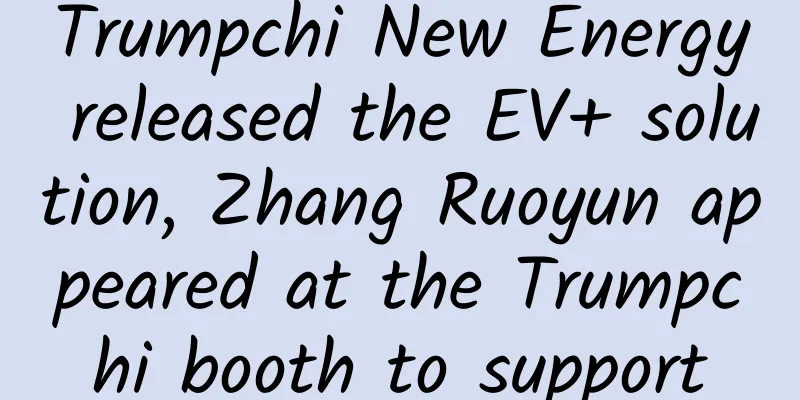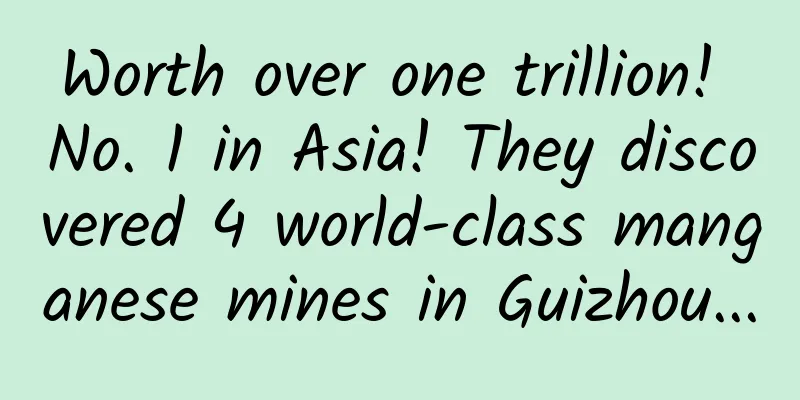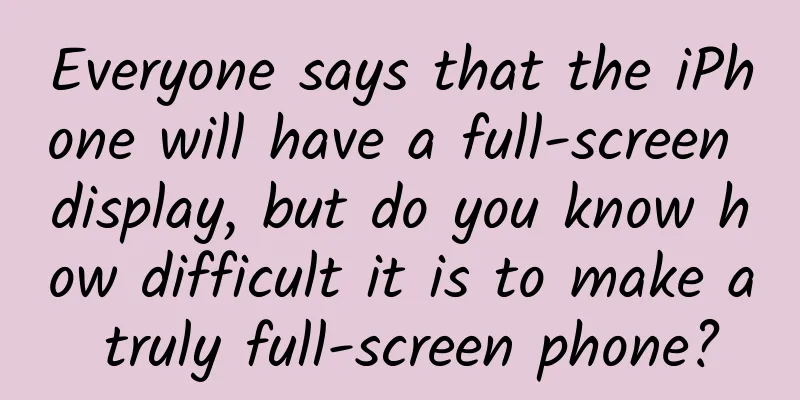Why HTC is in trouble: It's slowing down while the leaders are accelerating
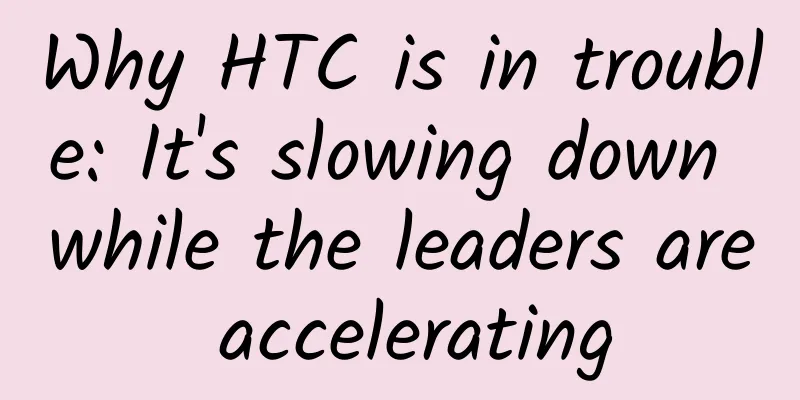
|
Foreign media Arstechnica published an article that deeply analyzed the reasons why HTC fell into trouble and looked forward to the company's prospects. The following is the full text: Have you heard anything about HTC lately? The company has had a pretty bad first few months of 2015. In March of this year, the company was valued at $4.06 billion, and now, just a few months later, its market value has evaporated by more than half. At about $2 per share, it is the lowest in more than a decade. In the just-concluded second quarter of 2015, HTC suffered a net loss of $258 million. And it's still going downhill. Compared with the same period last year, HTC's monthly revenue fell 38% in April, 48% in May, and 60% in June. Will July be worse? HTC is back to the struggling OEM that it once was, feeling like it could be eliminated from the competition at any time and never recover. HTC may even be acquired by another company. HTC was actually profitable in the four quarters leading up to the second quarter of 2015, though each quarter's profit was less than the previous one. It really started to lose money in April of this year. Why did HTC perform so poorly? One reason may be that April was the first full month after the company's 2015 flagship model, the HTC One M9, went on sale. We reviewed the M9 a few days ago and it felt like a disaster in the making. The company's 2014 flagship, the HTC One M8, hadn't performed very well in the market. The normal response would have been to go back to the drawing board and make a major upgrade, but HTC didn't do that. The M9 had a new system-on-chip and dropped some bells and whistles, like a dual-camera system, but the M9 was so similar to the M8 that even HTC confused them in its ads. HTC has other problems besides its flagship. While we can't blame the M9 for all of HTC's troubles, it does speak volumes. You only need to look at the company's 2015 lineup to see how much of an impact the flagship had on the rest of the lineup. Everything about the M9, from its launch to its design to its advertising, went terribly wrong. Out-of-control hype, disappointed users HTC's problems began in the run-up to the M9 launch. A rendering released by leaker Evleaks showed that HTC's flagship model would have a major design change. It would have an all-glass front, a more compact speaker, and two different sizes: a phone and a phablet. This rumor makes sense. The M7 and M8 are the largest 5-inch phones on the market, largely due to the speakers. HTC has already tried to reduce the size of the speakers on non-flagship models like the Desire Eye, so we all think that this development will also appear on its high-end devices. And the M7 and M8 are very similar, so it makes sense to overhaul them in the M9. This way, HTC will release a major update every year like Apple . But the rumor was completely false. It wasn't HTC's "fault" that the rumor was wrong, but the company did nothing to quell the hype about the M9. HTC knew that everyone believed the rumor, and knew that the phone it was planning to launch was far more conservative than the rumor, but it did nothing to deny the rumor. In fact, HTC people even said on Twitter that users would be "pleasantly surprised" in 2015, which everyone thought was a reference to HTC's new smartphone. It's understandable that companies want to keep certain things secret and don't want to spoil the surprise of their launch event. But they should also manage rumors to avoid disappointment. The best at this is of course Apple. Apple occasionally leaks such news to the media. It makes up some "stories" in the run-up to the product launch. These "stories" have a common purpose. Apple will come out and clarify to fans: "Hey, don't expect these rumored things to appear in our next launch event. It's not true. So don't be disappointed." But HTC did nothing. After the launch of the M9, HTC botched its marketing again. The company hired "Iron Man" Robert Downey, Jr. as a spokesperson during the height of the Marvel movies (which was awesome!), but failed to create a decent, memorable ad (which was disappointing). The ads never explained what the M9 could do or why people should buy it (admittedly, that was also a difficult task). And when Samsung signed a deal with Marvel to make an Iron Man-themed Galaxy S6, HTC lost even that luster. When the leaders speed up, you slow down The M8 was already a sluggish seller, and HTC made only minor improvements with the M9. The best-selling phone makers, on the other hand, made major overhauls to their flagships in the same year. Samsung was the world’s No. 1 smartphone maker in 2014, and in 2015 it released the all-new, glass-and-metal Galaxy S6 and the eye-catching, curved-screen Galaxy S6 Edge. Apple was No. 2 in 2014, and in 2015 it introduced the iPhone 6 and 6 Plus—two completely new products with new screen sizes and designs. HTC would have likely ranked in the 6th to 10th range in 2014 (market share lists only show the top five), but in 2015 it was slower to react than the mobile market leaders. HTC's biggest upgrade for the M9 is the Qualcomm Snapdragon 810 system-on-chip, but this chip has heating issues and will quickly throttle down due to overheating, so it's not a huge upgrade compared to the 2014 model. Reports of overheating issues have also made consumers wary of devices equipped with Qualcomm Snapdragon 810. HTC knew these chips ran hotter than normal, as anyone who played with the M9 for a while would have noticed. Yet HTC chose to stick with the 810. Perhaps it thought consumers wouldn't care, or wouldn't notice the throttling? It's hard to see any OEM using the 810 unless they had other plans. HTC has made its own choice. Everyone thought that M9 would be like this The saying “if it ain’t broke, don’t fix it” is true—but only for market leaders. Qualcomm's Snapdragon 810 overheating problem is a pitfall that market leaders Samsung and Apple have been able to avoid. They are further distanced from HTC. Apple has never used Qualcomm chips, so it is not affected. Samsung usually uses Qualcomm chips for its products released in the United States, but it used the criticism of the 810 as an opportunity to use its own Exynos chip series in its flagship models released in the United States. HTC has never released sales figures for the M9, but we're guessing they're terrible. Rumors from the supply chain suggest that HTC may have cut 30% of its component orders for the M9, and one carrier even pulled the M9 from its lineup due to "lackluster sales." The M9 flagship isn't the only reason HTC is in trouble, but it's a good indicator of the company's problems. In its second-quarter report, HTC blamed its financial problems on "slower than expected demand for premium Android devices in China." The company has produced just one other high-profile device, the Nexus 9, a budget tablet with poor build quality. HTC's performance was not satisfactory, so in June, Asus publicly considered acquiring the company. HTC also publicly rejected Asus, saying it "would not consider acquisition." After Asus's intention to acquire the company was announced, the company's stock price soared 10%, but after HTC refused, the stock price fell sharply. HTC needs to completely reinvent its flagship, reevaluate which features are important. And, frankly, be more humble. For the past few years, HTC has acted as if it were a complacent market leader with the best-selling smartphone. It has always taken an "if it ain't broke, don't fix it" approach, with the M7, M8, and M9 all being one and the same. When you're lumped into the "other" category in a market share table, things get awkward. HTC's phones haven't been selling well, but the company hasn't been significantly upgrading them. The road to recovery will be difficult HTC at least knows it's doing poorly. HTC's new chairwoman and CEO Cher Wang apologized to investors last month, saying "HTC's recent performance has disappointed everyone." Wang is a co-founder of the company and took over as CEO in March from long-time co-founder Peter Chou. As for HTC's recovery, the report says Wang promised a new "hero phone" in October and a significant improvement in innovation and design for the flagship next year. The first step to recovery is admitting you have a problem, so it's good to hear her say that. HTC says "next year, significant improvements in innovation and design..." It doesn't sound like there will be any improvement this year. But it could also be referring to an M9-style phablet, in which case HTC is still on the same old path. Wang also talked about cutting costs; here's a suggestion: Why not just get rid of the entire software division? HTC has a weird obsession with software development. It's launched a Flipboard knockoff called Blinkfeed, a social network called HTC Zoe, a greeting card app, and, of course, the "HTC Sense" Android skin. But these projects don't really help HTC sell its hardware. In the market, stock Android without additional apps makes a phone stand out. If HTC does this, it will immediately get good PR and improve the user experience of its phones. Plus, it will cost less than adding these useless software projects. While HTC's smartphones are a mess, the company is slowly expanding its horizons to produce products beyond smartphones. So far, we've seen the company launch a fitness wristband (in partnership with Under Armour) and a weird camera without a viewfinder, neither of which were particularly popular. Since HTC has performed poorly in the smartphone field and the One M9 seems to have been a fairly low priority, it sometimes feels like HTC's expansion of its product lineup is a move away from smartphones. The company says it's still committed to the smartphone market, but judging by the results of that "commitment", we don't know how long it will remain "committed". The brightest star in HTC's vision for the future is the Vive virtual reality helmet, a flagship device created in partnership with computer game company Valve for the Steam virtual platform. Like most virtual reality headsets, the Vive was an exciting product that earned HTC some much-needed press. Given the financial straits HTC is in, it would probably love to release a hot, best-selling VR headset. But the Vive isn't a finished product yet, and it's probably going to be a while before it's available. There's a reason why people say "Valve time" -- Valve is a perfectionist company that likes to delay releases. Those delays are software projects, which the company has years of experience with; Valve has much less expertise in launching hardware products. In addition, virtual reality itself is still an area that needs to be explored. HTC may have to wait a long time before launching a commercial helmet. Even so, any consumer version of the HTC Vive will face stiff competition. HTC and Valve will be up against virtual world leader Oculus, which has Facebook 's massive cash backing and Samsung's partnership and supply chain support. And Oculus also has several different developer and "Innovation Edition" products for developers and enthusiasts, with a solid consumer product launch plan for the first quarter of 2016. Valve, on the other hand, may not be too concerned about commercial success. The company is making a lot of money on Steam. It's clear that Valve's efforts in VR are mainly aimed at building a VR ecosystem for Steam, not selling a lot of hardware. Like the Steam Machine, the Vive will be just one piece of VR hardware in a long line. Who knows what will happen to HTC in the future. With its stock price at a 10-year low, there will likely be more talk of an acquisition. It currently has a flagship phone at the high end that no one wants to buy, and at the low end it has to deal with cheap competition from Chinese OEMs. The only bright spot we know of is the VR headset, but given "Valve time" it may be a while before it gets to market. Let's hope the "hero product" this October doesn't disappoint. At the apology press conference, Wang Xuehong talked about her vision for HTC's future: "I am very optimistic about HTC's prospects. Our goal is to focus on developing the right products." As a winner of Toutiao's Qingyun Plan and Baijiahao's Bai+ Plan, the 2019 Baidu Digital Author of the Year, the Baijiahao's Most Popular Author in the Technology Field, the 2019 Sogou Technology and Culture Author, and the 2021 Baijiahao Quarterly Influential Creator, he has won many awards, including the 2013 Sohu Best Industry Media Person, the 2015 China New Media Entrepreneurship Competition Beijing Third Place, the 2015 Guangmang Experience Award, the 2015 China New Media Entrepreneurship Competition Finals Third Place, and the 2018 Baidu Dynamic Annual Powerful Celebrity. |
<<: Analysis of the real status quo of domestic Internet parking development
>>: VisionMobile: IoT Developer Program Best Practices Survey (Infographic)
Recommend
These 4 strategies for promoting Xiaohongshu are a must-read!
Today, Xiaohongshu is increasingly becoming a bat...
"I am your wall breaker!" Air & Water: ...
Did you know that there is a "wall" bet...
Tik Tok’s operation routines to gain millions of fans!
With the end of Produce Camp 2021, Han Mejuan onc...
Color TV giants focus on quantum dot technology, which is a breakthrough
At this stage, OLED TVs have not yet entered the ...
Want to be the next hit? See Youtui CEO tell you how to double your app users through social media promotion
From the explosion of Faceu and Moman Camera to t...
How much does it cost to join the Chifeng Hotel Mini Program? What is the price for joining Chifeng Hotel Mini Program?
Why join the WeChat Mini Program Development Comp...
The bonus period of Douyin fans is coming, how can we take advantage of it?
Follow the flow , you will never go wrong. This s...
When will the phased reduction of employee basic medical insurance premiums begin? The tax reduction period shall not exceed 5 months! (Attached with full text)
In order to effectively reduce the burden on ente...
This type of cancer is often diagnosed in the middle or late stages! Women must do this examination after the age of 30!
Recently, at the National Breast Cancer Conferenc...
Internet celebrity Zhang Mofan is suspected to be married. Netizens met Internet celebrity Zhang Mofan at the Civil Affairs Bureau and he was suspected to be applying for a marriage certificate!
Recently, some netizens broke the news online tha...
Why do the things we longed to grab on Double Eleven not seem so attractive after we get them?
Review expert: Li Xianhong, National Level 2 Psyc...
Do you always feel that your bowel movements are not clean? Your body may be quietly "warning"!
Have you ever had this embarrassing moment: after...
How to increase the number of public account readers? Just read this article
Can you tell the difference between the final tit...
Google reveals more about integrating Rust into Android
Since 2019, the Android team has been working on ...
Yawning is contagious! When people yawn, do animals yawn too?
When we see someone yawning, we often yawn involu...


